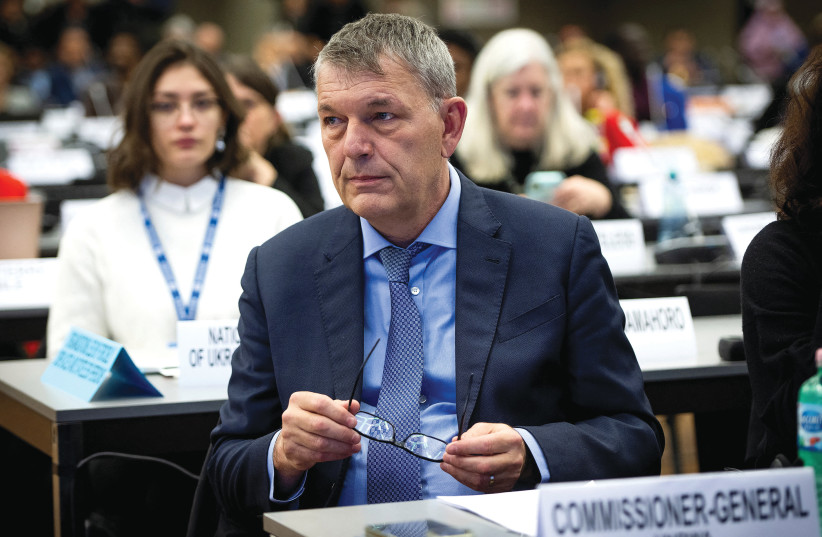The recent US acknowledgment of Israel’s readiness to discuss “the day after” is a pivotal moment in the current war. The discussion should go beyond the future military and security considerations for the Gaza Strip. It demands a closer look at educational, social, and civil issues, with the role of UNRWA at its core.
The Gaza Strip has witnessed an 86% population surge in the last two decades, growing from 1.13 million in 2000 to around 2.1 million in 2020, with expectations to double in the next 30 years. This demographic explosion in what is already one of the most densely populated areas of the world will complicate any future conflicts between Israel and Gaza. It will also increase the demand for humanitarian aid, education, and basic services.
The international community has so far provided these services, mainly through UNRWA. UNRWA’s existence and operations maintain Palestinians’ refugee status across generations, inhibiting their ability to establish permanent roots and fostering a longing for a return to what is now Israel. In the process, UNRWA has reinforced extremist ideologies that block the path to peace and hinder Palestinians from envisioning a future beyond this unending conflict.
UNRWA's role in Gaza deeply troubling
The evidence of UNRWA’s detrimental role in this context is deeply troubling. UNRWA’s schools and summer camps have become breeding grounds for hate and violence. Detailed reports from UN Watch have exposed over 150 instances since 2015 where UNRWA staff have been implicated in supporting terrorism and antisemitism.
Shockingly, 82 UNRWA teachers and staff across more than 30 schools have been caught distributing hateful content in their textbooks. One example is a textbook at UNRWA’s Al-Zaytun Elementary School in Gaza that glorifies Dalal Mughrabi, a terrorist who orchestrated a heinous attack on 38 Israeli civilians, including 13 innocent children.

This indoctrination is not only ideological but has tangible, dangerous outcomes. A recent IMPACT SE report establishes a direct link between the education provided in UNRWA schools in Gaza and the escalation of violence. Over 100 participants in the October 7 Hamas massacre were products of UNRWA education. Moreover, at least 14 UNRWA school staff members publicly praised the attacks on social media, showcasing, once again, a troubling glorification of violence.
The current crisis in Gaza presents an unprecedented opportunity to replace UNWRA with a better solution. Global efforts to rebuild Gaza create an opportunity to advance structural reforms that would realign the Palestinian refugee issue with global refugee management norms and promote a more peace-oriented alternative to current educational practices. These practices should be inspired by the highest global standards in conflict and post-conflict environments, including successful Israeli-Arab educational initiatives and strategies.
As a Diaspora Jew and Canadian citizen who is deeply invested in Israeli welfare and education, I fervently call on the Israeli government, as it deliberates on “the day after,” to prioritize the objective of dismantling UNRWA, and to work toward establishing alternative structures for education and social services. Addressing the extensive influence of UNRWA is not just strategic; it is imperative. The future security of Israel and the possibility of a lasting peace depend on decisively confronting and resolving this issue.
The writer is founder of Yedidut Toronto Foundation.
